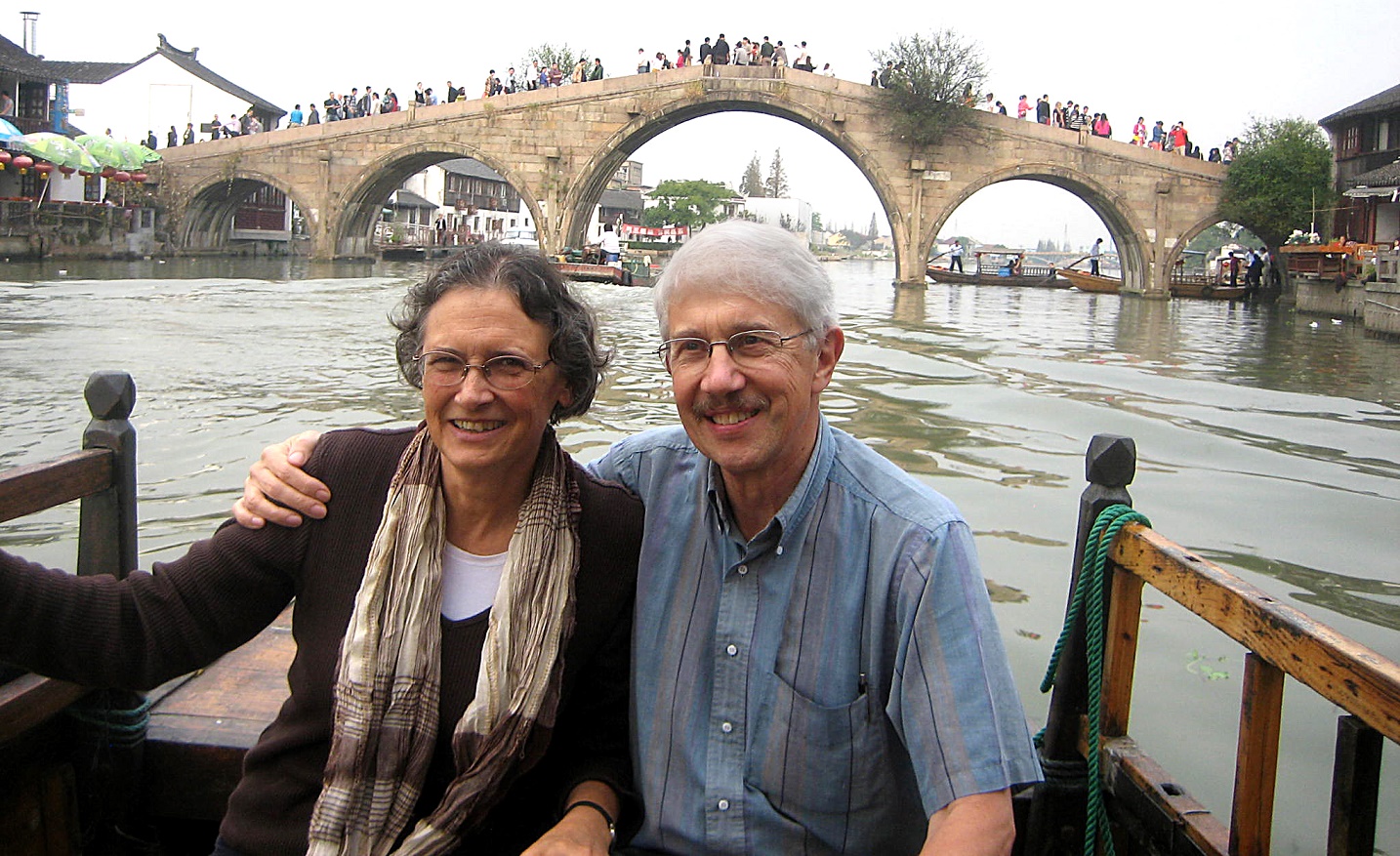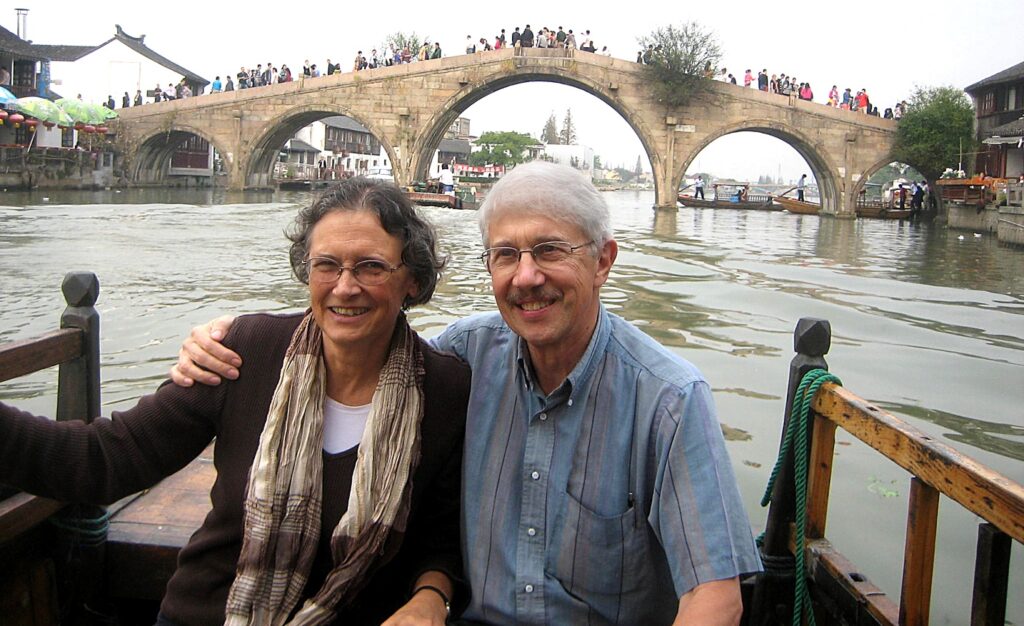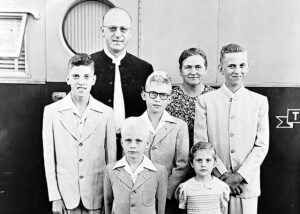We are Richard and Jewel (Wenger) Showalter. As church planters, missionaries, educators, mission administrators, parents and now grandparents, we have walked as part of the Mennonite family throughout our lives.
We love the Mennonite church and the broader body of Jesus Christ. Our lifelong passion has been to reach out to those who do not yet know Jesus. During the past 30 years, we have been privileged to do this in friendship with churches both in North America and around the world.
Now in North America the church is engaged in a wide-spread discussion which ranges through many denominations. Is homosexual practice part of God’s good creation or is it sin? Should same-sex covenantal unions now be included in our definition of Christian marriage?
Especially after reading Chester and Sara Jane Wenger’s eloquent appeal to change the church’s approach to same-sex covenantal unions, we are also moved to write to the church. We would love to agree with them because they are beloved elders (Jewel’s parents) and we want to walk in step with them. We resonate deeply with their call for compassionate, embracing love for all those in the LGBTQ community. We affirm that embrace.
We are grieved with our many sins of self-righteousness, judgmentalism, homophobia and lack of compassionate love in the body of Christ for those with same-sex attraction.
But we believe homosexual actions are sinful and we should not attempt to craft a more inclusive definition of Christian marriage.
“Sin” is not a popular topic, and we all struggle with temptations. But we must go to war with them. Jesus loves us so deeply he died for our sins — our greed, violence, homophobia, pride, self-righteousness, all of them. God knows each of our particular vulnerabilities — different for every one of us. He longs to root out sins that take root so deeply within us that we accept them as part of our identity.
We know that Jesus himself was tempted in “every way” like us. Yet he was without sin (Heb. 4:15).
Now Jesus walks with us to overcome, to “find mercy and grace in our time of need.” He gave us the scriptures as a life-giving message from heaven. His love is both enormously kind and incredibly tough and transformative. True love cannot affirm what God does not, yet Jesus always meets us where we are.
We have been members of West End Mennonite Fellowship in Lancaster, Pa., for many years. We love to read its mission statement written in bold letters on the wall of a former bar, “We welcome all people into a safe and healing community in which we grow to be more like Jesus and join him in extending his kingdom to the world.” Yes, “all people.” Yes, “like Jesus.”
When the early Anabaptists debated believers’ baptism or participation in war with those who would later burn them at the stake, their persistent plea was, “Show us from the scriptures.”
We appeal to those who promote a redefinition of Christian marriage — “Show us from the scriptures.”
We don’t wish to be divisive or to split the church. We don’t wish to cause pain and rejection. We do not support discrimination or violence against people because of their sexual orientation or practice. But we do wish to be faithful to the word of God.
While some point to issues such as slavery, the role of women, divorce and remarriage, and circumcision as ones on which the church has changed its mind, we see in the scriptures new vectors on these subjects in the example of Jesus and the early church.
Slaves are urged to obey their masters, but also to seek their freedom. Women are told to be quiet in the church, but also to pray and prophesy. God hates divorce, yet “because of unfaithfulness” divorce and remarriage were permitted. Both Old and New Testaments point toward obedience and “circumcision of the heart” as being more important than a circumcision in the flesh. The church has followed these vectors.
But we do not see new directions in relation to sexual sin and marriage relationships. Here the New Testament teachings are even more radical and prohibitive than they were in the context of Old Testament culture. “Don’t even look at a woman to lust after her. . . .” “Your body is the temple of the Holy Spirit.” “Run away from all sexual sins.”
Though it would be much easier to flow with the seemingly irresistible current in contemporary western culture on this issue, we appeal, please “show us from the scriptures” where this is God’s ideal and intent since the creation of the world.
On what do we as Christians base our ethics? Many westerners since the 1960s have appealed to love, kindness and compassion. But was it kind and loving of Paul to discipline a church member on grounds of immorality (I Cor. 5)? Not unless we have a Biblical understanding of sin. Please “show us from the scriptures” where same-sex behavior is not understood to be sinful and under God’s judgment. Show us where same-sex unions are part of God’s creation ideals for marriage. Jesus quoted Genesis that at the beginning the Creator “made them male and female. For this reason a man will leave his father and mother and be united to his wife. . . .” (Matt. 19).
Daniel was a man who stood alone in worship of the one true God in the face of the surrounding culture’s gods. Let us not bow our knees to an ethic of “kindness” and “love” outside the word of God. If the scriptures are to be trusted at all, God’s love is both kinder and tougher than many of our human understandings of it.
Kindness and love are nearly universal human values. We are privileged to have many kind and loving Muslim, Buddhist and secular friends. We talk freely about our beliefs, our similarities and differences. But we don’t assume that we are all part of the same worshiping community. We base our beliefs on different foundations, different authorities and a different relationship to Jesus.
Menno Simons’ favorite verse was, “For no one can lay any foundation other than the one already laid, which is Jesus Christ” (I Cor. 3:11).
The Mennonite church in Ethiopia chose this verse to shape its name, “the Christ Foundation Church.” We think it is significant that they and the majority of the church in the Global South do not appear to follow the Western church in raising this issue. Let’s not be afraid to test our theological questions in the global hermeneutical community.
Jesus said, “Anyone who loves his father or mother more than me is not worthy of me; anyone who loves his son or daughter more than me is not worthy of me. . . .” (Matt. 10:37). “Who is my mother and who are my brothers? . . . Whoever does the will of my Father in heaven. . .” (Matt. 12:48-50).
Jesus calls us to honor him above self, family, clan, tribe and nation. May it be so for us as a church!
Jewel and Richard Showalter are lifelong missionaries and members at West End Mennonite Fellowship in Lancaster, Pa. (Mennonite Church U.S.A.). This letter was posted on the website of Mennonite World Review and is used here with permission.
—Posted Nov. 15, 2014
See also:








Leave a Reply
You must be logged in to post a comment.